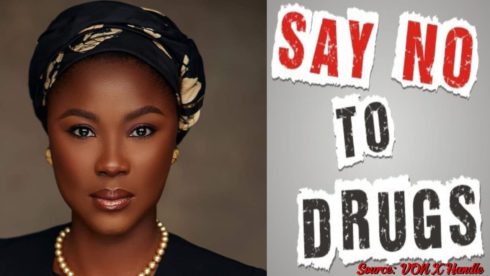Dr. Jamila Ibrahim, Minister of Youth Development, has reiterated the government’s unwavering commitment to eradicating drug abuse in Nigeria. During a sensitization event in Ado-Ekiti, Dr. Ibrahim emphasized the need for collective action to combat the scourge of substance abuse. She called for collaboration between state governments, stakeholders, and the general public to create a drug-free society, where young people can thrive without the influence of harmful substances.
The Minister’s clarion call underscores the government’s recognition of the devastating impact of drug abuse on individuals, families, and communities. By working together, Dr. Jamila Ibrahim believes that Nigeria can overcome the challenges posed by substance abuse and build a brighter future for its youth.
Collaboration Key to Success: Minister Dr. Jamila Ibrahim
Dr. Jamila Ibrahim’s appeal for collaboration is a testament to the government’s understanding of the complexity of the drug abuse problem. By engaging state governments, stakeholders, and the public, the government aims to leverage resources, expertise, and influence to create a comprehensive response to substance abuse. This collaborative approach recognizes that eradicating drug abuse requires a multifaceted strategy that addresses prevention, treatment, and rehabilitation.
The Minister’s emphasis on collaboration also highlights the need for a unified front against drug abuse. By working together, Nigeria can pool its resources and expertise to create a robust response to the challenge, ultimately reducing the prevalence of substance abuse and its associated risks.
Raising Awareness through Sensitization: A Critical Step
The sensitization event in Ado-Ekiti, which included a road show, demonstrates the government’s commitment to raising awareness about the health risks and prevention of substance abuse. By taking the message to the streets, the government aims to reach a wider audience, particularly young people, who are most vulnerable to drug abuse. The event’s focus on prevention and awareness underscores the government’s proactive approach to addressing the challenge.
The road show, which is an innovative approach to sensitization, allows for direct engagement with the public, providing an opportunity for questions, discussions, and feedback. This interactive approach helps to dispel myths and misconceptions about drug abuse, replacing them with accurate information and resources.
Youth Empowerment: A Key Strategy in Combating Drug Abuse
Empowering young people is a critical strategy in combating drug abuse. By providing them with accurate information, skills, and resources, the government can help them make informed choices about their lives and avoid the pitfalls of substance abuse. Dr. Jamila Ibrahim’s emphasis on youth empowerment underscores the government’s recognition of the importance of this demographic in shaping Nigeria’s future.
By investing in youth empowerment programs, the government can help young people develop resilience, self-esteem, and coping skills, reducing their vulnerability to drug abuse. This proactive approach recognizes that preventing substance abuse is more effective than treating its consequences.
Government’s Commitment to Rehabilitation: A Beacon of Hope
The government’s commitment to rehabilitation offers a beacon of hope to individuals struggling with drug abuse. Dr. Jamila Ibrahim’s message emphasizes the importance of providing support and resources to those affected by substance abuse, helping them to overcome their addiction and reintegrate into society. This compassionate approach recognizes that individuals struggling with drug abuse deserve empathy, understanding, and support.
The government’s rehabilitation programs aim to address the physical, emotional, and psychological aspects of drug abuse, providing a comprehensive response to the challenge. By offering a supportive environment, counseling, and treatment, the government can help individuals overcome their addiction and rebuild their lives.
Creating a Drug-Free Society: A Collective Responsibility
Creating a drug-free society requires a collective effort from all stakeholders, including government, civil society, and individuals. Dr. Jamila Ibrahim’s call to action emphasizes the need for shared responsibility in combating drug abuse. By working together, Nigeria can create a society where young people can thrive without the influence of harmful substances.
The government’s commitment to eradicating drug abuse is a step in the right direction, but it requires the support and involvement of all Nigerians. By recognizing the collective responsibility to address this challenge, Nigeria can harness its collective resources, expertise, and influence to create a brighter future for its youth.
Table of Contents
Discover more from OGM News NG
Subscribe to get the latest posts sent to your email.














